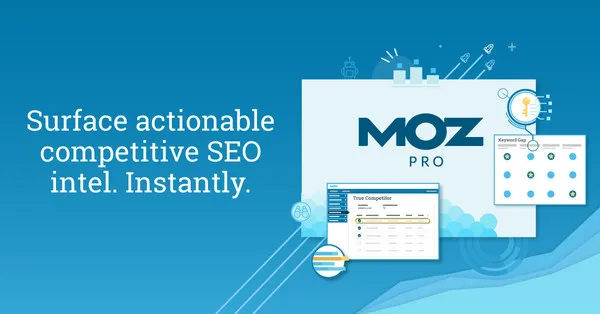Imagine this: you’ve just launched a fantastic website or online business, but no one seems to find it. You’ve put in hours of hard work, but it’s not generating the traffic and visibility you had hoped for. What could be the missing piece of the puzzle?
The answer lies in the power of Search Engine Optimization (SEO).
In this blog post, we’ll delve into the world of SEO and uncover the strategies and techniques that can help you rank higher on search engine results pages (SERPs). By understanding the fundamentals of SEO and implementing effective strategies, you can drive organic traffic to your website, improve your online visibility, and boost your business’s success.
Demystifying SEO
Search Engine Optimization, or SEO, is the art and science of optimizing your website to improve its visibility and rank higher in search engine results. It involves various techniques and practices that align with search engine algorithms and user intent.
To demystify SEO, let’s break it down. Search engines like Google, Bing, and Yahoo use sophisticated algorithms to determine the relevance and quality of webpages. When someone enters a search query, the search engine analyzes and retrieves the most relevant results from its index.


SEO comes into play by optimizing your website’s content, structure, and other elements to align with these algorithms and increase your chances of appearing higher in the search results. By doing so, you can attract more organic traffic and potential customers.
Understanding how search engines work is crucial to grasping the importance of SEO. Search engines use bots, also known as crawlers or spiders, to explore and index webpages across the internet. These bots analyze various factors like keywords, website structure, backlinks, and user experience to determine the relevance and ranking of a webpage.
In a nutshell, SEO is the process of making your website search engine-friendly and ensuring it meets the criteria that search engines consider valuable and relevant.
SEO: Beyond Keywords
While keywords play a significant role in SEO, there are several other crucial factors that go beyond mere keyword optimization. Let’s explore these elements that can elevate your website’s visibility and ranking on search engine results pages:


Quality Content
Search engines value high-quality, relevant, and engaging content. Create informative and valuable content that satisfies users’ search intent. Incorporate keywords naturally and focus on providing solutions, answering questions, and offering unique insights.
Site Architecture
A well-structured website with logical navigation enhances the user experience and helps search engines understand your content better. Organize your site into categories, use descriptive URLs, and optimize your internal linking to facilitate easy navigation and indexing.
Mobile Optimization
With the rise of mobile devices, optimizing your website for mobile users is crucial. Ensure your website is responsive, loads quickly on mobile devices, and provides a seamless user experience across different screen sizes.
Backlinks
Backlinks, or incoming links from other websites, are a vote of confidence and authority for your website. Earn high-quality backlinks from reputable sources within your industry. Focus on building relationships, creating shareable content, and leveraging influencer partnerships.
Now that we’ve explored the factors beyond keywords, let’s dive into a step-by-step guide to boosting your SEO efforts:
Keyword Research
Conduct thorough keyword research to identify relevant keywords and phrases that align with your business and target audience. Use keyword research tools and consider user intent to choose the right keywords for your content.
On-Page Optimization
Optimize your website’s on-page elements, including meta tags, headings, URLs, and image alt tags. Ensure your keywords are strategically placed throughout your content while maintaining a natural flow.
Content Creation and Optimization
Create valuable and engaging content that aligns with your target keywords. Incorporate relevant keywords naturally, use subheadings, and optimize your content for readability and user experience.
Technical SEO
Optimize your website’s technical aspects, such as site speed, mobile-friendliness, crawlability, and indexability. Fix broken links, ensure proper URL structure, and create an XML sitemap for search engines to understand your site’s structure.
Link Building
Develop a comprehensive link-building strategy to earn high-quality backlinks from authoritative websites. Reach out to industry influencers, participate in guest blogging, and leverage social media to amplify your content and attract link opportunities.
Monitoring and Analytics
Regularly monitor your website’s performance using SEO analytics tools. Analyze your organic traffic, keyword rankings, and user behavior to identify areas for improvement and make data-driven decisions.
By following these steps and consistently optimizing your website, you can enhance your SEO efforts and increase your chances of ranking higher on search engine results pages.
How SEO Impacts Your Business
Unleash the power of SEO to achieve higher rankings. Optimize your website, leverage keywords, and drive organic traffic for online success


Increased Organic Traffic
SEO helps improve your website’s visibility in search engine results, driving more organic traffic to your site. By appearing on the first page of search results, you can attract users actively searching for products or services related to your business.
Enhanced Brand Visibility
Ranking higher in search results increases your brand’s visibility and exposure. When users consistently see your website listed among the top search results, it builds trust and credibility. This increased brand visibility can lead to more brand recognition and customer loyalty.
Higher Conversion Rates
Optimizing your website for relevant keywords and delivering valuable content can attract highly targeted traffic. Users who find your website through search engines are often more likely to convert into leads or customers because they have already expressed interest in what you offer.
Cost-Effective Marketing
Compared to traditional advertising methods, SEO can provide a higher return on investment (ROI). While SEO requires upfront investment in time and resources, the long-term benefits can be substantial. Once you establish a strong online presence and maintain good rankings, the ongoing cost of maintaining SEO efforts is relatively low.
Competitive Advantage
In today’s digital landscape, businesses of all sizes are competing for online visibility. Implementing SEO strategies can give you a competitive edge by helping you outrank competitors and reach your target audience effectively. A well-executed SEO strategy can level the playing field and allow smaller businesses to compete with larger ones.
Now that we’ve explored the key elements of SEO and how to optimize your website, let’s delve into the significant impact SEO can have on your business. Here are some real-life case studies that demonstrate the power of SEO:
Moz’s SEO Strategy


Moz, a leading SEO software company, implemented a comprehensive SEO strategy that included optimizing their website structure, creating high-quality content, and building authoritative backlinks. As a result, they experienced a significant increase in organic search traffic, improved keyword rankings, and higher conversion rates. This case study showcases the transformative impact of a well-executed SEO strategy.
HubSpot’s Content Optimization


HubSpot, a renowned inbound marketing platform, focused on content optimization as part of their SEO efforts. By conducting extensive keyword research and creating valuable, user-centric content, they achieved higher search engine rankings, increased organic traffic, and improved user engagement metrics. This case study demonstrates the power of strategic content optimization in driving SEO success.
Airbnb’s Local SEO Success


Airbnb, a global online marketplace for accommodations, leveraged local SEO to dominate search engine results for various destinations. Through targeted keyword optimization, location-specific landing pages, and positive user reviews, Airbnb significantly increased their visibility in local search results. This case study highlights the effectiveness of local SEO strategies for businesses targeting specific geographical markets.
These case studies highlight how SEO can drive tangible business outcomes, such as increased website traffic, improved brand visibility, and higher conversions. By investing in SEO, businesses can gain a competitive edge and establish themselves as authoritative players in their industry.
SEO Mistakes to Avoid
While SEO can be highly rewarding, it’s crucial to avoid common mistakes that can hinder your progress. Here are some SEO mistakes to steer clear of:
Keyword Stuffing
Overloading your content with keywords can negatively impact user experience and lead to search engine penalties. Focus on creating valuable, user-centric content that naturally incorporates keywords.
Neglecting Mobile Optimization
With the majority of internet users accessing websites through mobile devices, neglecting mobile optimization can result in a poor user experience and lower search engine rankings. Ensure your website is mobile-friendly and responsive.
Ignoring User Experience
Search engines prioritize websites that provide a positive user experience. Pay attention to factors like page load speed, intuitive navigation, and easy-to-read content to enhance user experience and improve search rankings.
Not Monitoring Analytics
Failing to regularly monitor SEO analytics can make it difficult to track progress and identify areas for improvement. Utilize tools like Google Analytics to analyze website performance, track keyword rankings, and gain insights into user behavior.
Skipping Content Optimization
Content optimization goes beyond keyword placement. Neglecting elements like meta tags, headings, and alt tags can hinder your SEO efforts. Optimize these elements to improve search visibility and click-through rates.
Avoiding these common mistakes will help you stay on track and maximize the benefits of your SEO strategy.
Tools and Resources for SEO
To support your SEO efforts, various tools and resources are available that can provide valuable insights and streamline your optimization process. Here are some essential tools and resources to consider:


Keyword Research Tools
Tools like Google Keyword Planner, SEMrush, and Moz Keyword Explorer help you identify relevant keywords for your business. They provide search volume data, competition analysis, and keyword suggestions to guide your content creation and optimization.
SEO Analytics Tools
Google Analytics and Google Search Console are indispensable tools for monitoring your website’s performance. They provide valuable data on organic traffic, user behavior, keyword rankings, and website errors, allowing you to make data-driven decisions.
On-Page Optimization Tools
Tools like Yoast SEO (for WordPress) and Moz On-Page Grader help optimize your web pages. They analyze content, meta tags, headings, and other on-page elements, providing suggestions to improve your optimization efforts.
Backlink Analysis Tools
Tools such as Ahrefs, Majestic, and Moz Link Explorer help you analyze your website’s backlink profile. They provide insights into the quality and quantity of backlinks, helping you identify opportunities for link building and monitor your competitors’ backlink strategies.
SEO Plugins
If you use a content management system (CMS) like WordPress, consider using SEO plugins such as Yoast SEO or All in One SEO Pack. These plugins provide on-page optimization features, XML sitemap generation, and other SEO-related functionalities.
SEO Forums and Communities
Engaging with SEO forums and communities like Moz Q&A, Reddit’s SEO subreddit, and Warrior Forum can help you stay updated with the latest trends, seek advice, and network with SEO professionals.
SEO Blogs and Publications
Regularly reading reputable SEO blogs and publications, such as Moz Blog, Search Engine Journal, and Backlinko, can keep you informed about industry updates, best practices, and emerging SEO techniques.
Conclusion
In conclusion, mastering the power of SEO is crucial for ranking higher on search engine results pages (SERPs) and driving organic traffic to your website. By understanding the core principles of SEO, optimizing your website with user experience in mind, and leveraging the right tools and resources, you can improve your visibility, attract your target audience, and achieve business success.
Don’t overlook the importance of SEO in your digital marketing strategy. Embrace SEO best practices, adapt to evolving search engine algorithms, and continually refine your optimization efforts to stay ahead of the competition. Remember, SEO is an ongoing process that requires dedication, monitoring, and adaptation to maximize its benefits.
Now that you understand the power of SEO, it’s time to take action. Contact Neuroimpakt today to leverage our expertise and drive your website to the top of search engine rankings. Let us help you unlock the full potential of SEO and achieve your business goals.
References:
- Backlinko’s Definitive Guide to SEO
- Moz’s Beginner’s Guide to SEO
- Search Engine Journal’s SEO Guide
- Neil Patel’s SEO Analyzer
- HubSpot’s SEO Blog
- SEMrush Blog
- Google Webmasters Central Blog
- Search Engine Land
- Sullivan, D. (2020). What Is SEO / Search Engine Optimization? Search Engine Land
- Patel, N. (2022). The Beginner’s Guide to SEO. Neil Patel
- Fishkin, R. (2021). Moz’s Beginner’s Guide to SEO. Moz
- Dean, B. (2020). Backlinko’s Definitive Guide to SEO. Backlinko



